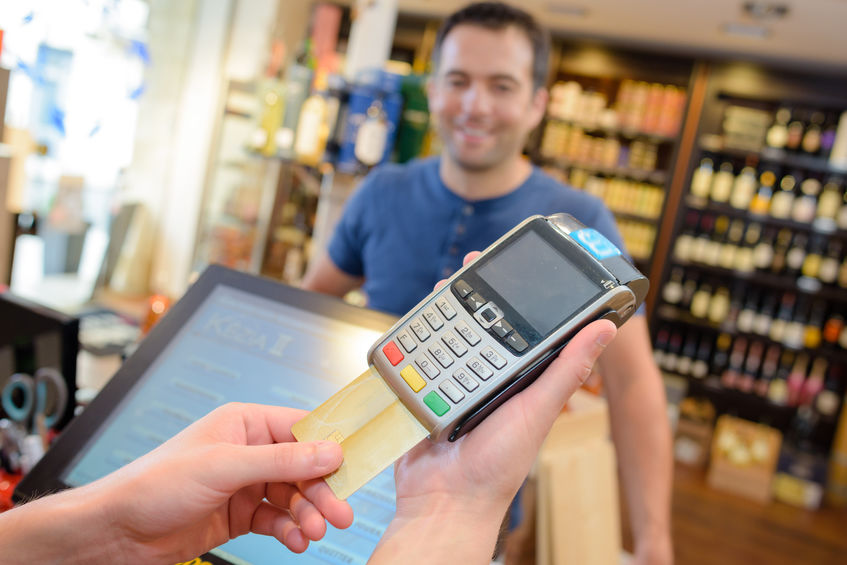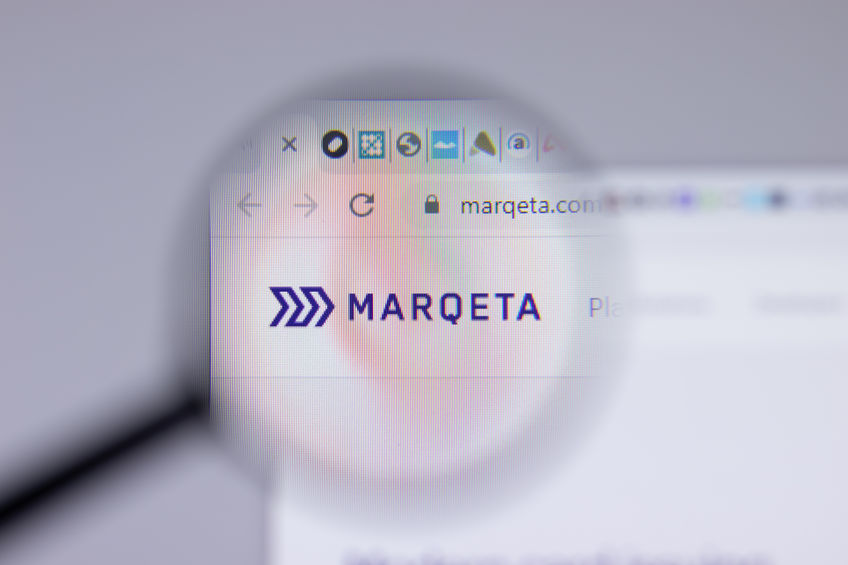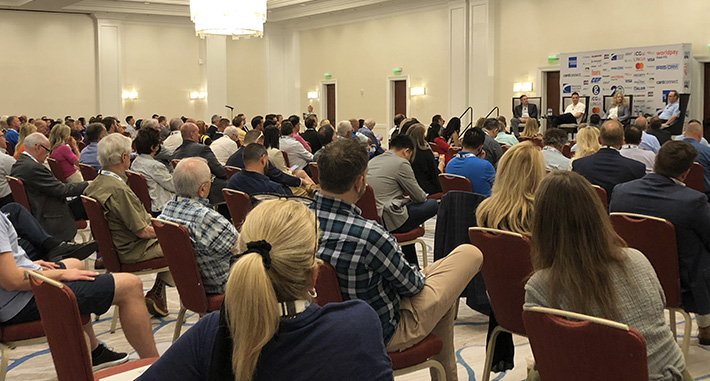Kevin Travers was a Reporter at deBanked.
Articles by Kevin Travers
Orlando SBA Lender Fountainhead Funds $4 Billion+ in PPP
June 23, 2021 Fountainhead, an Orlando-based SBA lender, funded over $4.72 billion in PPP loans to SMBs in the past 15 months. According to the SBA, the 30 member team facilitated the 12th most PPP loans in the country.
Fountainhead, an Orlando-based SBA lender, funded over $4.72 billion in PPP loans to SMBs in the past 15 months. According to the SBA, the 30 member team facilitated the 12th most PPP loans in the country.
So far in 2021 alone, Fountainhead funded $3.95 billion, after a total of $760 million in 2020, preserving 430,000 American jobs, they estimated.
“We did not shy away from the latest round of PPP. Before it was introduced, we were implementing new procedures and building on what we learned from the first and second rounds in order to create a more streamlined and effective system for our customers,” said CEO and Founder Chris Hurn. “It’s no secret that the past few months have been anything but easy. While our team endured long days and nights with little time to rest, we’re extremely proud to have helped so many small businesses. Our team performed admirably. I’m so very proud of them.”
Fountainhead’s current objective is to process PPP loan forgiveness applications while also refocusing on its core business of SBA 7(a) and SBA 504 loans.
8.4 Billion Passwords Breached: Are you sure the customer you’re emailing with is really your customer?
June 18, 2021 Most financial companies consider their own security, ever-vigilant for attacks on their own systems, but data breaches taking place everywhere else still create new risks to deal with. What happens if those around you are severely compromised and nobody knows?
Most financial companies consider their own security, ever-vigilant for attacks on their own systems, but data breaches taking place everywhere else still create new risks to deal with. What happens if those around you are severely compromised and nobody knows?
Will LaSala, the Director of Security Solutions at OneSpan, saw a giant red blip on the radar last week, the largest compilation of leaked passwords in history. A file containing 100 GB of 8.4 billion passwords appeared on a popular hacker forum.
Need your merchant to send you their bank log-ins to set up ACH payments? That is exactly when hackers can get you, LaSala said. LaSala said that these leaks have become more common this past year as the world became digital-first.
“So passwords are really a weak form of authentication, right? If you’re using a password today, you’re asking to be hacked,” LaSala said. “With this breach alone, it’s probably close to 25 billion credentials that are out in the dark web today.”
Dubbed ‘RockYou2021,’ it’s a shocking breach of collected data, even larger than the 3.2 billion email and password combinations leaked in February this year.
There are only 4.5 billion internet users, according to Statista, so that’s a lot of passwords. The only way to stop the steal is to get ahead of the blistering rate algorithm tech is evolving through multi-factor authentication, LaSala said. Many believe their passwords are safe, he said, because just five years ago they were unbreakable. Some of these now can be cracked in seconds.
 “We saw the death of an [encryption] algorithm called DES about six or seven years ago now,” LaSala said. “Very soon after that, we saw the death of the next algorithm, which was called triple-DES. People did not believe that those algorithms could be cracked in the amount of time that it was.”
“We saw the death of an [encryption] algorithm called DES about six or seven years ago now,” LaSala said. “Very soon after that, we saw the death of the next algorithm, which was called triple-DES. People did not believe that those algorithms could be cracked in the amount of time that it was.”
LaSala said that ultimately, without multiple factors, data is easy to take. Some hackers don’t just steal data or finances the moment they get access to it either, LaSala warned, but instead dig deep into systems for years, even decades. There, they may steal data quietly undetected or focus on installing backdoors to ensure their access is permanent.
Perhaps many financial companies are already monitoring for this type of intrusion, but what to make of the possibility that their customers have been compromised? How do they know that they’re even communicating with their actual customers? They could do well to advise their customers to use multi-factor authentication in everything else they do online, not just with them. It would probably be to everyone’s benefit.
“The ability to use something you have like a mobile device, plus something like a pin, or even a fingerprint or a base ID, you combine those different factors of authentication together, and it makes it so that breaches like this, you’re not going to get caught up in anymore,” LaSala said.
Thrasio Acquires Yardline to Offer E-Commerce Funding
June 16, 2021 Amazon merchant conglomerate Thrasio bought Yardline to incorporate e-commerce finance into the product offering. Thrasio has been active with Yardline since the firm’s initial backing of the company, and is now making Yardline a wholly owned subsidiary.
Amazon merchant conglomerate Thrasio bought Yardline to incorporate e-commerce finance into the product offering. Thrasio has been active with Yardline since the firm’s initial backing of the company, and is now making Yardline a wholly owned subsidiary.
Yardline Chief Revenue Officer Seth Broman said that historically, e-commerce has been risky with no barrier to entry like traditional brick and mortar shops. Broman added that online stores used to be for supplements, but through Amazon’s third-party marketplace and Shopify’s help, scaling a quality business has become possible.
“Through COVID, the script was flipped,” Broman wrote in a statement. “E-commerce businesses became less risky, and brick-and-mortar businesses suffered the most. It’s also a much smaller universe and harder to target than a brick-and-mortar business.”
Thrasio boasts it is the largest acquirer of Amazon brands globally, and co-founder and co-CEO Carlos Cashman said 40% of brands they approach end up selling. Now, they can help scale those brands.
“Yardline will be an asset in creating more opportunities for these entrepreneurs and offering more sophisticated avenues for growth,” Cashman said in a statement. “They’ve been doing something different in the space—their strategic approach to providing embedded capital across e-commerce marketplaces is unique—and we’re eager to have their technology and proficiency on our team.”
Tomo Matsuo, president of Yardline, will be joining Thrasio’s senior leadership team. “It’s conceivable that every eCommerce-related platform will have FinTech capabilities in the future,” he said in a statement. “And our acquisition by Thrasio demonstrates that.”
CC Splits Still Make Profits, Payments Knowledgeable Funders Benefit
June 15, 2021 Back in its heyday, the MCA industry began as credit card factoring. The original product was simple- purchase future credit card receivables, and collect a percentage of them every day: easy peasy. Then, the industry broadened into ACH, funding businesses that did not have credit card purchases and credit card receivables became less common.
Back in its heyday, the MCA industry began as credit card factoring. The original product was simple- purchase future credit card receivables, and collect a percentage of them every day: easy peasy. Then, the industry broadened into ACH, funding businesses that did not have credit card purchases and credit card receivables became less common.
But some funders still work with credit card payments through long-standing payment processor relationships. Cash Buoy is a Chicago-based MCA firm that uses a network of twelve major credit card processors and thousands of representatives from payments ISOs to fund old-fashioned MCAs. Co-Founder and president Sean Feighan would tell you that having connections in payments pays off for both merchants and ISOs.
“The whole point is to add value to their business. By doing split funding remittance,” Feighan said. “It’s a much more comfortable way for the merchant to pay back the advance, it gives them some breathing room on the ebbs and flows of their volume, as opposed to having that hard fixed daily ACH that doesn’t care if they were closed on Monday, are slow on Tuesday, or we’re in a global pandemic.”
Feighan attests that the CC model still works great. He said alongside co-founder Brian Batt, they started Cash Buoy to give ISOs a better option. He boasts a renewal rate of 90% on his CC products, and his default rates for standard MCAs are a “night and day difference” with CC splits.
But operating heavily within the payments realm requires some expertise, something that long-time veterans of the MCA space are fortunate to have accumulated from the era of the product’s origin.
 Steven Hunter, a multi-decade industry vet explained where the MCA concept came from. Hunter worked at CAN Capital back in 2000 when it was still was called AdvanceMe when he and the data team developed one of the first credit card factoring products.
Steven Hunter, a multi-decade industry vet explained where the MCA concept came from. Hunter worked at CAN Capital back in 2000 when it was still was called AdvanceMe when he and the data team developed one of the first credit card factoring products.
“The idea came across to build a credit card-based product, because a lot of the original development team other than myself, were the First Data guys,” Hunter said. “And they said ‘okay well what if we could factor future sales, instead of three invoices or accounts receivable or inventory’, which we all know how to factor those things, that’s been in place since biblical times.”
So they built a model, aiming to fund merchants and take out a small amount of money from their credit card splits. Merchants would never see the money hit their bank, and the product just felt like free investing money paid for off of the increase in future sales.
When restaurants and other merchants shut down during the pandemic or rolled back to 25% capacity, many ACH funders found out their customers could not keep up with the pre-set debits. While defaults were on the rise, Cash Buoy was getting paid back, Feighan said, at an admittedly slower rate but still seeing returns.
Feighan has intentionally shied away from ACH. Cash Buoy is modeled on his and Batts’ connections in the payments space. They founded Cash Buoy after five or six years of experience in on-boarding merchant accounts. Feighan said he tried brokering but became disappointed with the process of working with an outside funder.
“[Other firms] may not have the relationships to get split funding at national processors,” Feighan said. “Maybe they didn’t have enough business or money in the bank when they went through the application process with different processors to get true split funding accommodations.”
Hunter agreed that without payment connections it is hard to factor CCs these days. Shortly after AdvanceMe began CC splits, other firms caught up and began developing similar products, with slightly changed terms like automatic set ACH draws. Eventually, he said this made MCAs more loan-like as opposed to a real variable product.
In 2021, there are many reasons that firms adopt ACH right off the bat, he said.
“Well, several reasons one, not every company takes credit cards,” Hunter said. “The thing is that some credit card processors, I’m not going to name any names, are very hostile to the product and they will not actually help people. They won’t help you manage the remittance, they won’t split for you, because they consider you to be a competitor, afraid you will take a portion away.”
 The final reason Hunter said is a lot less elegant. He said in order to make this work, as a direct funder, you have to exchange files with every credit card processor you work with every night on every deal you have.
The final reason Hunter said is a lot less elegant. He said in order to make this work, as a direct funder, you have to exchange files with every credit card processor you work with every night on every deal you have.
“So you got to send them something out and say, populate this for us. ‘Joe’s Bait Shop, What did they do today? Today they did this much money, your split is 11%, here’s what’s coming to you,'” Hunter said. “Then you import that back into your system and Joe’s Bait Shop’s balance drops by this amount. Right, that’s hard. I mean it’s a pain in the ass to manage, and I have people who do nothing but exchange, you’ve got to have processors who work with you and you’ve got to have the expertise.”
Hunter now works as a consultant, known in the industry as a go-to for MCA funding help. As for Cash Buoy, after the pandemic year, things are only on the up and up. Covid could not have happened at a worse time right after a three-year bull run, Feighan said, but now that things are back, there are “high water funding amounts each month.”
“The biggest thing here in Cash Buoy are our partners, our ISO partners, and processors,” Feighan said. “And if anybody were to say, ‘tell me, what’s the most important thing to you, Cash Buoy,’ it is 100% Our agent partner program. That is number one. The whole point of the company was to be able to provide a ton of value to national processors and ISOs.”
Balboa Capital Closes $50 Million Corp. Note Financing
June 9, 2021 Equipment financer, SMB, and franchise financier Balboa Capital, closed a $50 million corporate note financing from a “consortium of prominent, U.S.-based institutional investors.” The firm said it plans to use the financing to refinance a portion of corporate debt, and to fund working capital.
Equipment financer, SMB, and franchise financier Balboa Capital, closed a $50 million corporate note financing from a “consortium of prominent, U.S.-based institutional investors.” The firm said it plans to use the financing to refinance a portion of corporate debt, and to fund working capital.
“This transaction demonstrates the strength of our business and our investors’ support for our strategy and growth potential in 2021 and beyond,” CFO Heather Parker said. “We are well-positioned as one of the largest independent financing companies in the United States and will continue to play a meaningful role in the nation’s economic recovery by helping small businesses access growth capital.”
Brean Capital, LLC served as Balboa Capital’s Exclusive Advisor and Placement Agent in connection with this transaction.
Last October, the firm secured its seventh equipment asset-backed securitization valued at $201 million. “This is another step toward our key business objectives, which are to increase our financial flexibility, continue our growth, and maintain sufficient capital during any economic condition,” Parker said.
Marqeta Goes Public on The NASDAQ
June 9, 2021 Marqeta went public on the Nasdaq this afternoon, raising $1.2 billion and pricing higher than expectations. The firm priced 45.5 million shares at $27, and prices rose to over $30 a share.
Marqeta went public on the Nasdaq this afternoon, raising $1.2 billion and pricing higher than expectations. The firm priced 45.5 million shares at $27, and prices rose to over $30 a share.
Marqeta sells payment tech designed to detect fraud by issuing physical cards to independent contractor firms like DoorDash and Instacart. Contractors use Marqeta cards at point-of-sale in restaurants and supermarkets. Marqeta also enables Square’s Cash App debit card and Buy Now Pay Later fintech firms Affirm and Klarna to move money.
The firm applied for a public offering on May 15th, posting an annualized first quarter 2021 revenue growth of 123% to $108 million and a 2020 annual revenue that had doubled to $290.3 million.
FBI Seizes 84% of Colonial Pipeline Bitcoin Ransom
June 8, 2021 A month after hackers shut down the Colonial Pipeline for a ransom of $4 million in bitcoin, the FBI got the majority of the money back.
A month after hackers shut down the Colonial Pipeline for a ransom of $4 million in bitcoin, the FBI got the majority of the money back.
Bitcoin, the digital currency idolized as free and far from the reaches of the government, was confiscated (some theorized “hacked”) this past week. The FBI took back $2.3M: half of the pipeline ransom. The Bureau followed the 75 bitcoins via the blockchain and, according to an affidavit uploaded by ABC News, seized the private key to the bitcoin account and took 63.7 bitcoin. Though the FBI secured 84.9% of the ransom in BTC, the crypto’s price is down to nearly half last month’s value.
Now, bitcoin enthusiasts like the editors at Decrypt will swear that there is no way the FBI could hack a private account that without the private key and account number, both long strings of numbers, the encryption makes it impossible to get in. But law enforcement could confiscate Bitcoin through other methods.
The blockchain is a ledger going back to the first block mined with all transactions perfectly traceable. With enough computer power, an agency can retrace steps hackers take and force the address owner to comply.
April Falcon Doss, executive director of the Institute for Technology Law and Policy at Georgetown Law, told NPR that while unlikely, there is even a theoretical possibility that the FBI outright hacked the private key.
But “The idea that the FBI would have, through some brute-force decryption activity, figured out the private key seems to be the least likely scenario,” She said. Still, a currency that is supposed to be “the future of finance” dropped more than 8% after the news that digital terrorists couldn’t rely on bitcoin for illegal activity.
SEAA: 1,000+ Attendees In Atlanta Next year, Thanks deBanked
June 8, 2021 1,000 people registered at the Southeast Acquirers Association 20th-anniversary conference Bonita Springs Florida: a smash hit in part due to the hybrid presentation model and deBanked’s video coverage, the executive board members of SEAA said. Treasurer John McCormick said next year in Atlanta would be even bigger, following a hybrid in-person venue with recordings and live streams that would pack over 1,000 participants in the show.
1,000 people registered at the Southeast Acquirers Association 20th-anniversary conference Bonita Springs Florida: a smash hit in part due to the hybrid presentation model and deBanked’s video coverage, the executive board members of SEAA said. Treasurer John McCormick said next year in Atlanta would be even bigger, following a hybrid in-person venue with recordings and live streams that would pack over 1,000 participants in the show.
“To have our biggest show on the West Coast of Florida was really gratifying,” he said. “We registered over 1,000 and were just shy of that number with check-ins. I think we’ll [surpass that] next year in Atlanta, which will be a great celebration for our board and advisory committee.”
McCormick helped co-found the organization along with Audrey Blackmon and Judy Foster in 2001. In March, he talked with deBanked, describing the difficult choice to go back in person full capacity, a decision that turned into a major win. Derek Vowels, director of partner solutions at Aliaswire and SEAA board member, thanked Cypress Planning Group for the venue support and deBanked for helping produce the in-person and online hybrid model.
Everyone rose to the occasion, Vowels told Green Sheet, thanking Sean Murray, deBanked chief editor, publisher, and deBanked reporter Johny Fernandez, who conducted live interviews at the conference. “Attendees can view every breakout session, presentation, and popular CBD panel on the app and web portal for the rest of the calendar year,” he said. “Going forward, hybrid events that combine face-to-face meetings with recordings will be the norm.”
Alongside live streaming from the show floor on May 25th from 9 am to after 6 pm, Sean and Johny pored through interviews with industry experts.
Sam Schapiro, leader of funding application platform Fundomate, talked with Johny about the resilience of the human species, American small businesses, and funding slowdown.
Shawn Smith, the CEO of Dedicated Commercial Recovery, met with Sean to talk about the new post-covid environment in the B2B space and Florida golf.
Aviv Baron, the founder of Direct Payment Group, talked with Sean about changes in merchant spending, payment processing, cannabis, and drop shipping trends in the past year.
And automated accounts receivable fintech CEO Garima Shah talked with Johny about her firm Biller Genie, and the world opening for business after a year of covid.
deBanked is looking forward to the new year as covid restrictions lift and events come back in person.






























